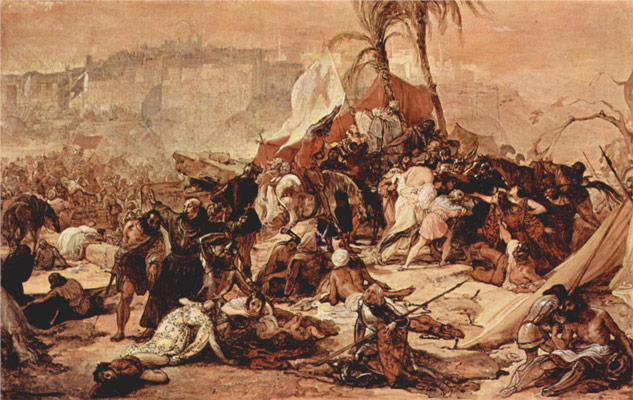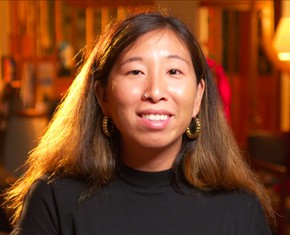The views expressed in our content reflect individual perspectives and do not represent the authoritative views of the Baha'i Faith.
Mankind has fought wars over religion, or so the history books tell us.
But rarely does “religious” conflict result solely from religion. If it did, then the appropriate arena for resolution would be in comparison and discussion of scripture and interpretation. This is definitely not what happens:
 Religion has become like a light that is only seen through many brightly colored lamp shades. While the lamp shades may be beautiful, they inevitably color the light with the peculiarities of our interpretation. Consequently, when we encounter other religions, we experience it as different from ours because that which we first encounter is the lamp shade – not the light that inspired it. Rather than see a people who responded to an obvious light in the same way we would have responded to the light – if we were in their position in time and space – we see a different religion and wonder how to subvert it. Baha’is believe at the source of all true religions there is a common light and that in the oneness of this light people can find peace and agreement:
Religion has become like a light that is only seen through many brightly colored lamp shades. While the lamp shades may be beautiful, they inevitably color the light with the peculiarities of our interpretation. Consequently, when we encounter other religions, we experience it as different from ours because that which we first encounter is the lamp shade – not the light that inspired it. Rather than see a people who responded to an obvious light in the same way we would have responded to the light – if we were in their position in time and space – we see a different religion and wonder how to subvert it. Baha’is believe at the source of all true religions there is a common light and that in the oneness of this light people can find peace and agreement:
The foundations of all the divine religions are peace and agreement, but misunderstandings and ignorance have developed. If these are caused to disappear you will see that all the religious agencies will work for peace and promulgate the oneness of humankind. For the foundation of all is reality and reality is not multiple or divisible. – Abdu’l-Baha, Promulgation of Universal Peace, p. 122.
The great religious scholars of our time understand this principle. Joseph Campbell writes after concluding his four-volume set The Masks of God :
Looking back today over the twelve delightful years that I spent on this richly rewarding enterprise, I find that its main result for me has been its confirmation of a thought I have long and faithfully entertained: of the unity of the race of man, not only in its biology but also in its spiritual history, which has everywhere unfolded in a manner of a single symphony, with its themes announced, developed, amplified and turned about, distorted, reasserted, and today, in a grand fortissimo of all sections sounding together, irresistibly advancing to some kind of mighty climax, out of which the next great movement will emerge.
On some level everyone that has taken a moment to look fairly at the various lamp shades of any revealed religion must confess there is a beauty there. And where there is a beautiful shade there must be a beautiful light to illuminate it. To put it in New Testament terms, a good fruit can only come from a good tree. This recognition of the beauty of religions, even their outer expression, has become very important. It may at least allow us to coexist with other religious groups, while we make more serious investigations of the fundamentals of faith.

The Seventh Crusade Against Jerusalem by Francisco Hayez
But exploring faith isn’t easy in a world propelled rapidly forward by an explosion of technology, media, travel, and information – which is far from accidental and which Baha’is will point out had a definite beginning in the middle of the last century. We have been launched into times in which our very identities have been challenged. Most of our problems stem from the fact that we have failed to realize this era’s enormous changes.
In just the past few decades, the information and travel explosion has made us all world citizens. The whole world has become our affair — and that includes all its religions. Religion is communicated either formally or informally. In old days we received instruction in one religion only. In these days, however, media has brought all religions into our living rooms. Of course, the quality of the instruction we receive is only as good as the source – and the operators of media cannot be universally trusted to be fair. But, through both formal and informal education, we have been introduced to all faiths. This has never happened before.
Thus, for the first time, we not only have the capacity, but the duty as world citizens to compare religion in our investigation of truth. If we fail, or do a poor job, our very peace and security will also fail. Why? Because we are no longer separate people. We are one people, even though we have been slow to recognize it. We are the world, and consequently its religions. To be fair to the demands of our new age, we must fairly evaluate the religions we come into contact with, and this includes our own traditional religion.
















Comments
Sign in or create an account
Continue with Googleor